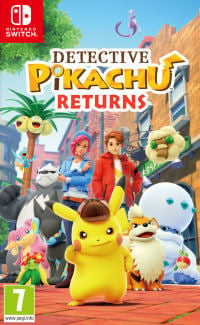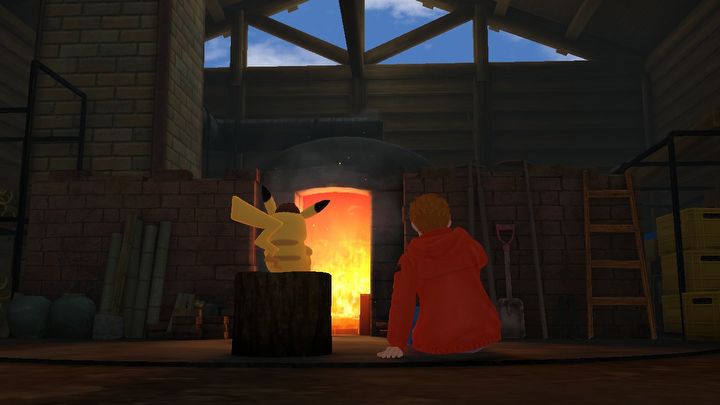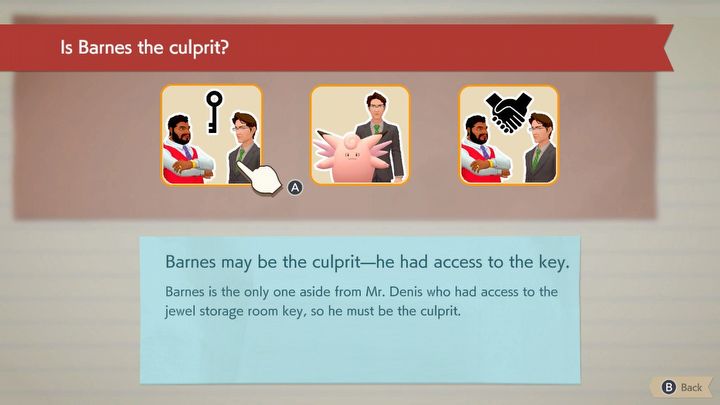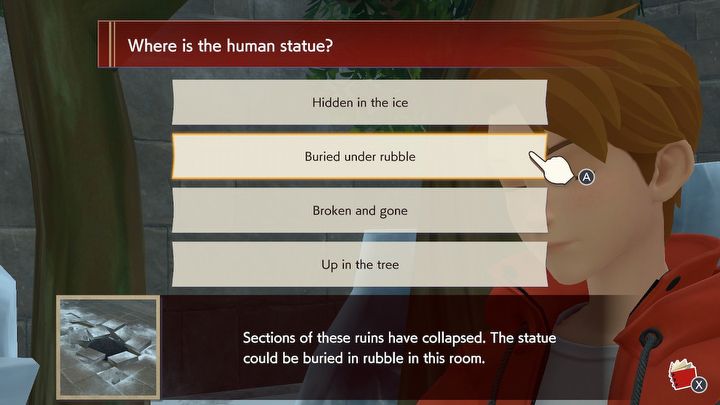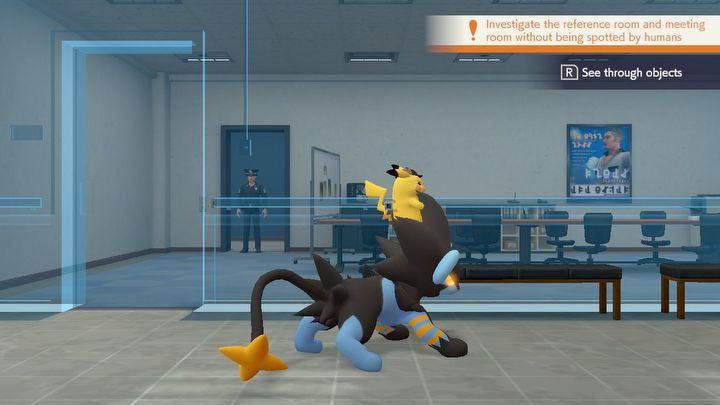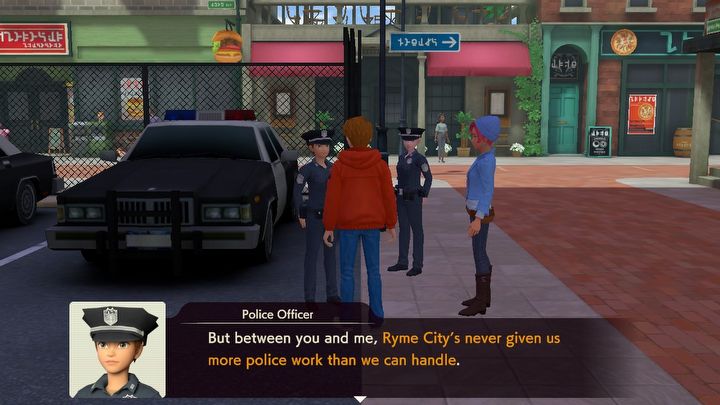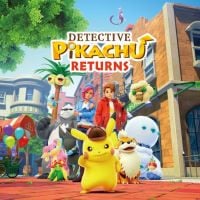Detective Pikachu Returns Review: Elementary Deductions
Making their debut on Nintendo Switch, Detective Pikachu and pals are ready to solve even more cases even though their work may seem like child’s play from afar.
The review is based on the Switch version.
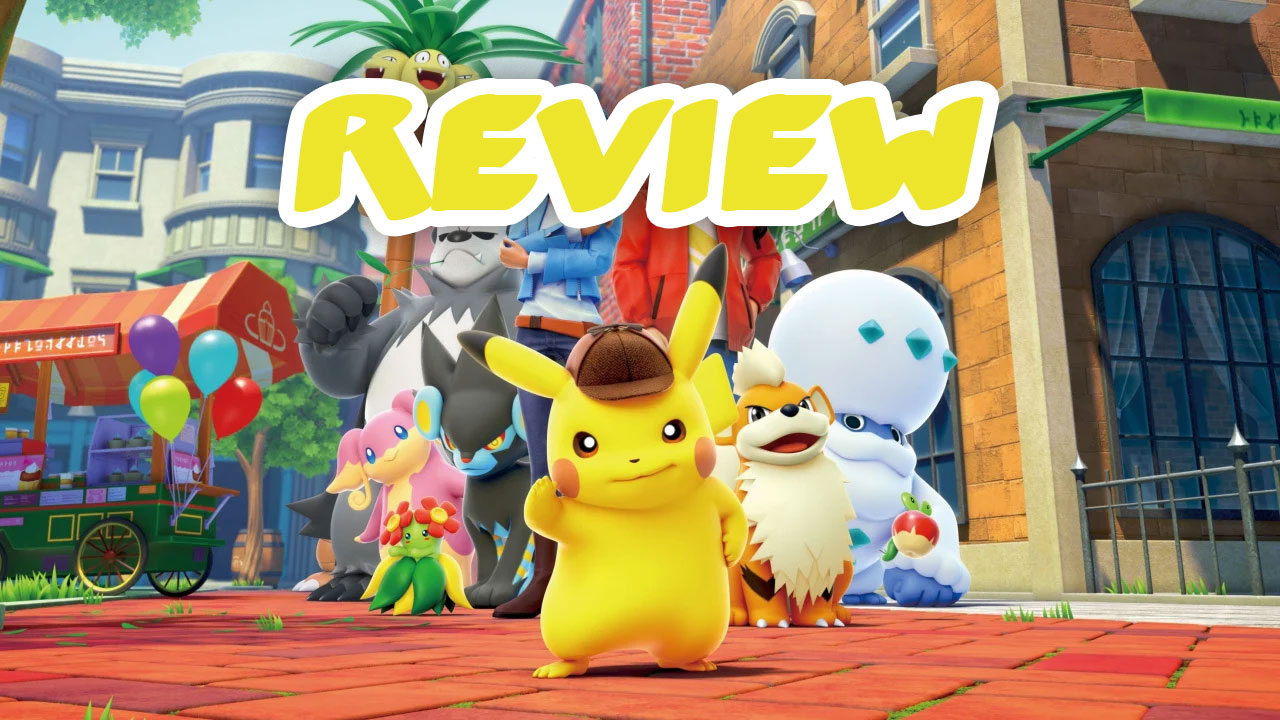
The original 2016 Detective Pikachu game made such an impact when it first came out back in Japan that it inspired a US port, a movie, and now a sequel. You don’t normally think of Pikachu as a gruff-sounding Pokémon, but this series takes a step back from the usual battle-based aspect of Pokémon games and lets us play detective by examining crime scenes, interrogating witnesses, and solving cases.
Whether you enjoyed the original 3DS title or thrilled in hearing Ryan Reynolds voice the titular Pokémon, this sequel makes it easy to continue where you left off. Despite seemingly being geared more for kids, the game finishes an intriguing story and features dark themes normally unexplored in the games of the main series. Its overly simplistic and repetitive gameplay and drab visuals, however, make it difficult to appreciate from a mature perspective, making you wonder who the game was truly designed for.
- An intriguing story that features themes not explored in regular Pokémon games
- Fun Pokémon buddies that space out the normal flow of gameplay
- Pokémon are charming and voiced well
- Repetitive gameplay
- Overly simplistic deductions and cases to solve
- Dull, ugly visuals
Cracking the Case
As a true sequel, Detective Pikachu Returns picks up right where the original 3DS game left off and even summarizes what happened in the first game to help new players get on the same page. You also don’t need to have watched the film to appreciate the game’s story, which, interestingly enough, shares many aspects with the film that you will wonder what inspired what. The game follows a young detective Tim and his partner Pikachu as they solve cases together in order to find the whereabouts of Tim’s missing father and to put an end to evildoers forcing Pokémon to do their bidding.
Surprisingly enough, the game deals with some heavy themes that you wouldn’t expect a Pokémon game to even mention. Then again, the main series games focus on catching Pokémon and creating a balanced team suitable for battles, so shifting things slightly and making Pokémon feel like part of everyone’s daily life gives you a different view into their world. The denizens of Ryme City all have a Pokémon they call their partner and you don’t see them pitting them against each other for spoils or gym badges. Instead, Returns gives you a more mature take on the Pokémon-human dynamic.
This theme is actually integral to the game’s story as you will spend most of the game solving cases that involve both people and Pokémon. Each chapter features a case you will need to solve and takes you to areas where you will need to explore your surroundings for clues, interrogate people and Pokémon, and come to deductions to solve the problem at hand. It’s a detective game, after all, and its visual novel gameplay means that you will be doing a lot of talking and walking around (often in circles) as the story updates and asks you do it some more.
This wouldn’t be a problem if there were some dynamism in the exploration part of the game, but the issue with Returns is that it features cases that are very, very simple. Oftentimes, you will already know the answer to a problem, but will need to gather every bit of data or talk to every single person before you can come up with your “brilliant” deduction, which turns out is just a simple answer to a simple question. Then, you need to make even more deductions before summarizing your findings to the main actors in the given case.
Elementary-level decisions
Right away, you will get the feeling the game is geared towards a younger audience. If you make a mistake during one of your deductions, you will simply have to try again without any penalty. Miss a quick-time event queue, and you can just keep going. Basically, the game is foolproof and won’t ever surprise you with something you hadn’t thought of already. Considering the original 3DS title had some fun puzzles that made you think, the overly simplified format of Returns feels lacking in difficulty and variety.
Each chapter does include some unique opportunities that let you veer away from the usual repetitive routine and team up with a Pokémon to continue your investigation. You can ride on Growlithe, for example, and track down the scent of some evidence, or ride aboard Luxray and use his X-Ray vision to avoid guards and carefully escape a location. It’s these moments in the game that constitute a breath of fresh air and introduce a more fun way of completing the cases.
The Pokémon that dot each chapter also bring the game’s world to life as it wouldn’t be a Pokémon game without them. You won’t see too many cool displays of Pokémon moves in action, but the game does a great job incorporating the various species you see in ways that fit their personality and attributes. What’s even better is that certain Pokémon you normally wouldn’t even think of are the ones that stick with you the longest considering how important they are to the game’s story. Cramorant and Darmanitan, you now hold a dear place in my heart!
On the other hand, the people that actually make up Ryme City are bland and almost lifeless due to how basic the game’s visuals and animations are. Sure, Pokémon Violet and Scarlet suffered from graphic and performance issues, but at least the areas you could explore were vast and filled with Pokémon to find. Here, you mainly can only run left or right through areas that feel more like hallways and corridors than streets or parks even when you’re outside. These visual letdowns also hurts the people you meet as many of them are so dull and unforgettable you won’t even remember them despite their importance to the story.
Verdict:
“Detective Pikachu Returns is a fun albeit flawed game designed for children to enjoy with a family member next to them. Its core gameplay does get repetitive the more you play it, but what brings it all together and keeps you engaged is its story and themes that give it depth despite taking place in a game that looks too simple to even make an impact.”
You can find all our reviews on Metacritic and OpenCritic.
Final Thoughts
Detective Pikachu Returns took me a little over 10 hours to complete, so it was just the right length before it got too boring or cumbersome. Besides just solving the main case, each chapter also includes brief quests you can complete that usually involve looking for certain Pokémon or undergoing a fetch quest. It would have been nice getting some kind of reward for completing these, but in the end all you get is the satisfaction of knowing you’ve made someone’s day.
Considering the game’s emphasis on partners, Detective Pikachu Returns is a fun, albeit flawed game designed for children to enjoy with a family member next to them. Its core gameplay does get repetitive the more you play it, but what brings it all together and keeps you engaged is its story and themes that give it depth despite taking place in a game that looks too simple to even make an impact. It’s a strange juxtaposition, but it also means that the game does have some redeeming qualities that will connect with you no matter how old you are.
Detective Pikachu Returns
Detective Pikachu Returns Review: Elementary Deductions
Making their debut on Nintendo Switch, Detective Pikachu and pals are ready to solve even more cases even though their work may seem like child’s play from afar.
